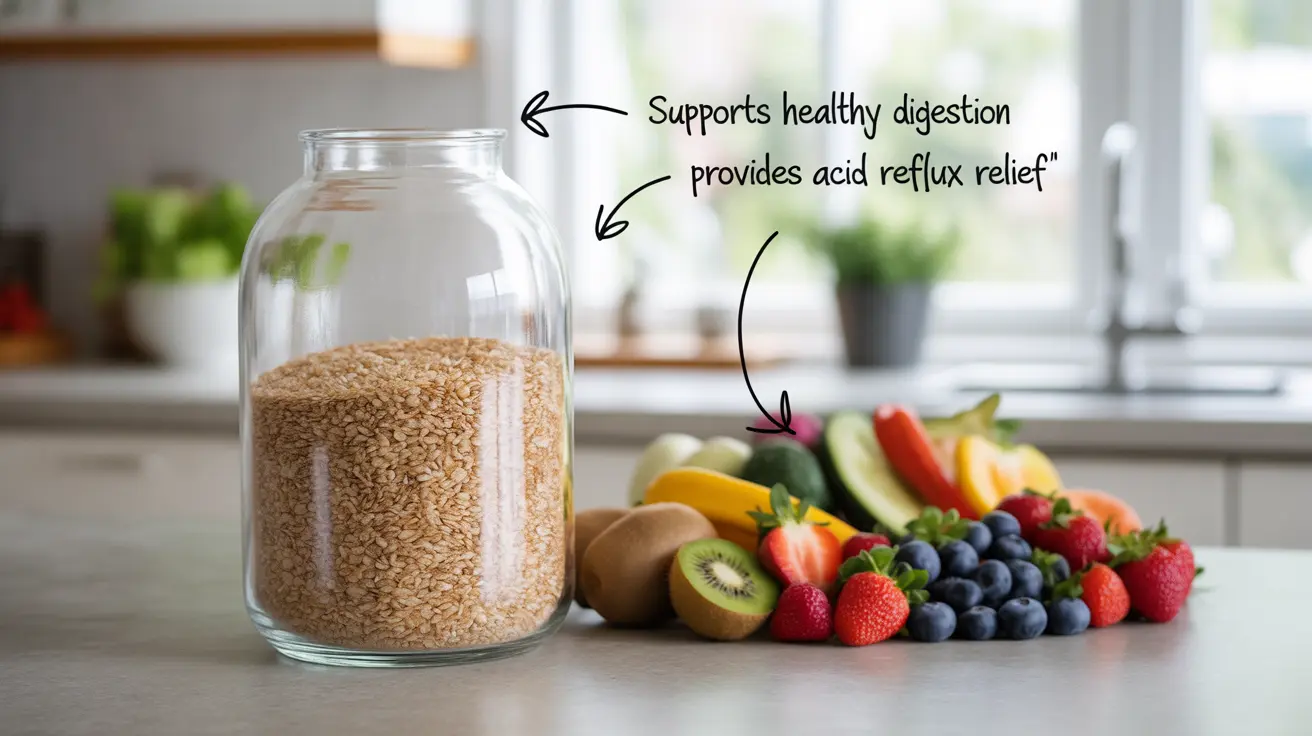For those struggling with acid reflux and heartburn, finding effective management strategies is crucial for quality of life. While many people focus on dietary changes and medications, fiber supplements have emerged as a promising option for managing acid reflux symptoms. This comprehensive guide explores how fiber supplements, particularly psyllium husk, can help alleviate acid reflux and improve digestive health.
Understanding the Connection Between Fiber and Acid Reflux
Fiber plays a vital role in digestive health by promoting regular bowel movements, maintaining healthy gut bacteria, and helping regulate the digestive process. When it comes to acid reflux, certain types of fiber can help strengthen the lower esophageal sphincter (LES) and reduce symptoms by promoting proper digestion.
Types of Fiber Supplements for Acid Reflux Management
Psyllium Husk: The Leading Choice
Psyllium husk stands out as one of the most effective fiber supplements for acid reflux management. This natural fiber source works by absorbing excess water in the digestive tract, forming a gel-like substance that helps regulate digestion and prevent reflux episodes.
Other Beneficial Fiber Options
While psyllium husk leads the pack, other fiber supplements can also help manage acid reflux symptoms:
- Methylcellulose
- Guar gum
- Acacia fiber
- Ground flaxseed
How Fiber Supplements Work Against Acid Reflux
Fiber supplements help combat acid reflux through multiple mechanisms:
- Improving digestion efficiency
- Reducing pressure on the lower esophageal sphincter
- Promoting regular bowel movements
- Preventing constipation that can worsen reflux
- Supporting healthy gut bacteria balance
Proper Usage and Dosage Guidelines
When incorporating fiber supplements into your acid reflux management plan, start with these general guidelines:
- Begin with a low dose and gradually increase
- Take supplements with plenty of water
- Space fiber intake throughout the day
- Allow 2-3 hours between fiber supplements and medications
Safety Considerations and Potential Side Effects
While fiber supplements are generally safe, be aware of these potential issues:
- Initial bloating or gas
- Possible interference with medication absorption
- Risk of choking if not taken with adequate water
- Temporary digestive adjustment period
Frequently Asked Questions
What is the best fiber supplement for managing acid reflux and heartburn symptoms?
Psyllium husk is considered one of the best fiber supplements for managing acid reflux due to its gentle yet effective action on the digestive system. It helps regulate digestion and can strengthen the lower esophageal sphincter function.
How does psyllium husk help reduce acid reflux and improve lower esophageal sphincter function?
Psyllium husk works by absorbing excess fluid and forming a gel-like substance that helps normalize digestion. This action can reduce pressure on the LES and help prevent stomach contents from flowing backward into the esophagus.
Can taking psyllium husk relieve acid reflux caused by constipation?
Yes, psyllium husk can help relieve acid reflux related to constipation by promoting regular bowel movements and preventing the buildup of pressure in the digestive system that can trigger reflux symptoms.
What is the recommended dosage of psyllium husk for acid reflux relief?
Start with 1/2 to 1 teaspoon of psyllium husk powder or 3-5 grams daily, gradually increasing to 2-3 times per day as tolerated. Always take with at least 8 ounces of water per serving.
Are there any side effects or precautions when using psyllium husk for acid reflux?
Common side effects may include temporary bloating, gas, or mild stomach discomfort. Take precautions by starting with a low dose, drinking plenty of water, and spacing fiber intake throughout the day. Consult your healthcare provider before starting any supplement regimen, especially if you have existing medical conditions or take medications.




